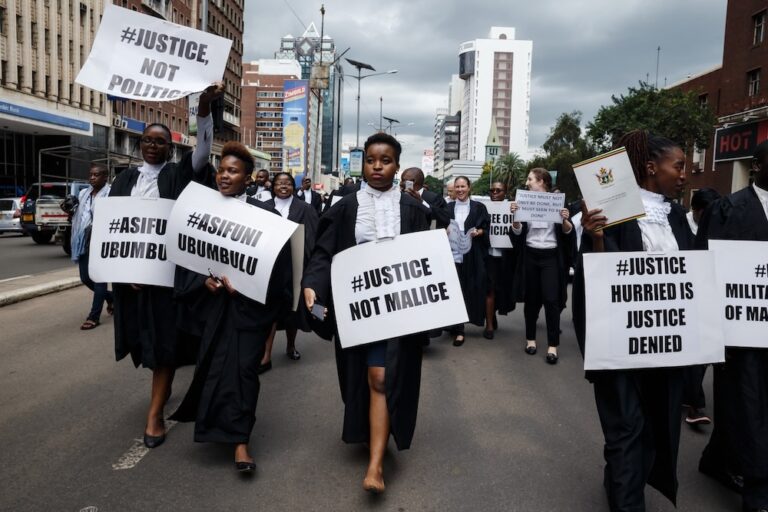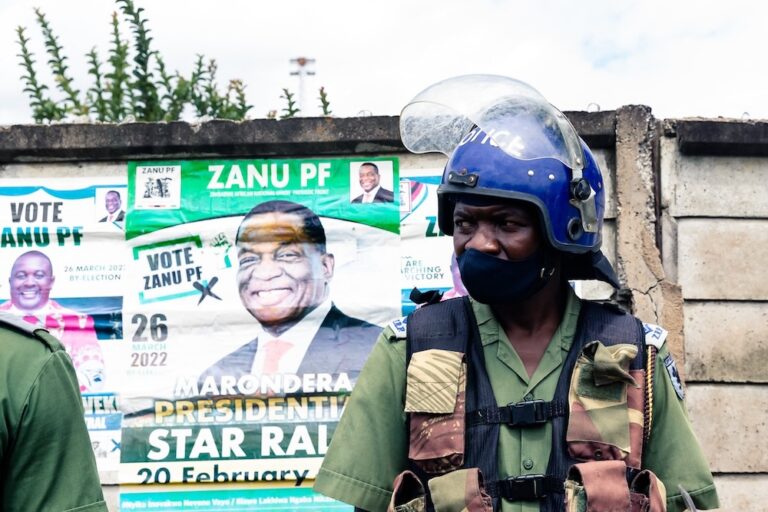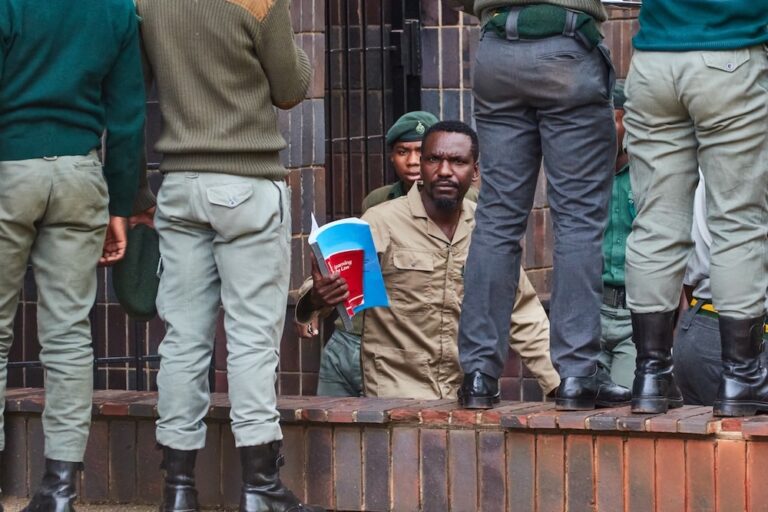(MISA/IFEX) – On 19 February 2003, soldiers manning queues at a supermarket in the capital, Harare, assaulted photographer Philimon Bulawayo, of “The Daily News” newspaper, as he prepared to take pictures of the long winding queues. Bulawayo told “The Daily News” that he was standing opposite Batanai Supermarket, preparing to take photographs, when two soldiers […]
(MISA/IFEX) – On 19 February 2003, soldiers manning queues at a supermarket in the capital, Harare, assaulted photographer Philimon Bulawayo, of “The Daily News” newspaper, as he prepared to take pictures of the long winding queues.
Bulawayo told “The Daily News” that he was standing opposite Batanai Supermarket, preparing to take photographs, when two soldiers approached him. The soldiers proceeded to beat him up, saying he was “likely to take pictures.” After the assault, the soldiers handed him over to police, who confiscated his camera. The police then handcuffed Bulawayo and took him to the Harare central police station, where he was made to sit on the floor while police officers beat him up.
“I was taken to another officer who took down my personal details and warned me not to visit any place where there would be long queues of people looking for basic commodities,” Bulawayo said.
Commenting on the incident, Gugulethu Moyo, legal advisor to the Associated Newspapers of Zimbabwe, publishers of “The Daily News”, said that the arrests of journalists from “The Daily News” is disturbing because it appears to have become a systematic, unlawful use of force and powers of arrest.
“Over the last few months we have seen an escalation of detentions and police violence against our staff. The Zimbabwe Republic Police now, as a matter of habit, detain our reporters while on duty, on the pretext that they have committed criminal offences,” Moyo said. “During these detentions, undue force is used against the reporters, they are denied other fundamental freedoms and then, quite predictably, they are released without charge,” she explained.
Moyo added that although protections may exist against unlawful detention, torture and inhumane and degrading punishment, these protections become totally meaningless if the state institutions that exist to protect these very rights become the principal violators.
MISA-Zimbabwe confirmed that Bulawayo was released the same day. No charges were pressed and his camera was returned to him.


